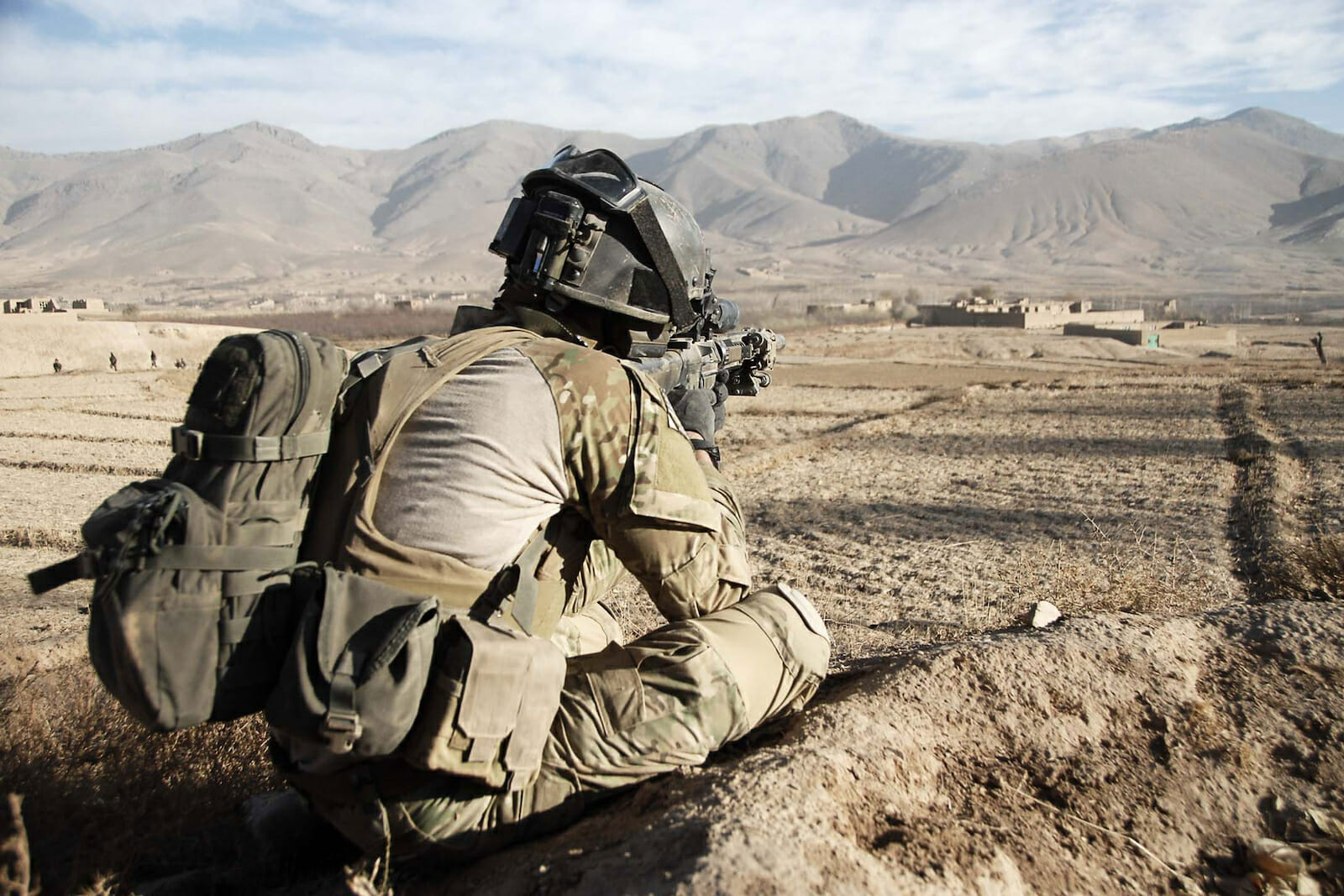
Fault-Lines in Afghanistan’s Political Settlement
During 2013 the International Security Assistance Force will continue to reduce its footprint in Afghanistan as coalition partners rapidly withdraw troops ahead of the end of the NATO-Afghan mandate in 2014. However, 2014 will not be the end of the US or the International Community’s (IC) mission in Afghanistan. 2014 will mark the beginning of a new chapter for IC engagement in Afghanistan. To be successful NATO and the IC must immediately take several aggressive steps in order to prepare for the political transition. Significant efforts have been made both in Europe and the US to set the stage for negotiations with the Taliban. The hope is that such negotiations will ready Afghanistan for a more productive post-2014 political environment. Despite the international community’s presence in country for more than a decade, these discussions are premature because of the inability of the Afghans and the IC to push for a robust internal Afghan political settlement. If Afghans cannot get along with each other internally, they certainly cannot coherently negotiate with an external force.
Rather than focusing on settling disputes between competing factions within the Afghan government in order to create a coherent and effective Afghan government, the IC has left such discussions up to the Afghans, and in doing so has allowed for the continuation of the inept and corrupt Government of the Islamic Republic of Afghanistan (GIRoA). In many respects this failure can be traced to the reason the IC remains in Afghanistan. Except for security, IC support in Afghanistan has failed to reform its political system, advance its economy significantly, or address systemic corruption in any substantive way. This failure is the result of competing internal political factions within the Afghan government.
Real power remains concentrated in the hands of former mujahedin elites who, divided by old prejudices and hatreds, have taken few steps to strengthen the government, preferring to line their own pockets. Afghanistan’s political malaise has crippled the state and engendered deep apathy among the population with regard to the country’s defense and advancement.
Afghanistan, although extended many of the rights of a sovereign nation by the IC, has a significant sovereignty gap, a gap that Afghan politicians have made no attempt to close, and one that does not stem from the ongoing conflict with the Taliban, but rather from the unwillingness of Kabul to address the fractured nature of the Afghan political environment.
The major political factions with power in Kabul are the mujahedeen-era elite, who are ill-prepared to lead a modern state, and believe that they are entitled to power because of their service in the anti-Soviet jihad of the 1980s. Driven by fear, distrust, and narrow self-interest, these elites have consistently pursued short-term hedging strategies, used the government to enrich themselves and their clients, and consolidated factional interests in preparation for a post-ISAF Afghanistan, rather than committing to a nationalist program of governance.
This is the fragile foundation upon which ISAF and the IC have attempted to build a nation, a foundation ill-prepared to govern post-2014, and ill-equipped to engage with the Taliban. President of Afghanistan Hamid Karzai’s leadership and governance strategy is at the root of the problem. Mr. Karzai has enabled the bad behavior of the mujahedeen-era elites. Fundamentally distrustful of democratic institutions, Mr. Karzai has, since the early years of his first term, been reliant upon corrupt concessions, deal-making, and above all patronage politics to maintain a tenuous balance of power among Afghanistan’s elites.
Mr. Karzai has always functioned primarily as a tribal leader who resolves disputes by ceding power to allies and balances potential competitors against one another—rather than as a truly modern state executive. Senior ministerial positions and top provincial government posts have been distributed as spoils of war among Afghanistan’s power brokers, who have in turn filled their institutions’ ranks with loyalists from their respective ethnic and political factions. Although this was done originally with the acceptance and oversight of the IC during the original Bonn conference in 2001, no progress has been made in developing the political system.
Despite the international community’s ongoing capacity-building efforts and technical assistance, Afghanistan’s institutions function not as effective bureaucracies for state administration, but as vertically-integrated patronage networks, which in many cases have become engaged in the systematic diversion of government resources and other illicit activities on a massive scale. Rather than serve the people of Afghanistan, the government is composed primarily of politically linked criminal networks that serve the interests of a narrow elite, and are protected by the corrupt Afghan legal system that has undermined the rule of law at every turn.
The fragility of Afghanistan’s judicial sector and weak rule of law have facilitated the patronage network’s subversion of institutions across the Afghan government. In particular, political interference by the Attorney General’s Office, which has failed to actively and aggressively pursue any high-profile cases in the past year, is among the most serious failures.
Attorney General Muhammad Aloko has not only facilitated the corruption of senior government officials but has done so in an open and unrestrained way.
All attempts at the removal of Mr. Aloko and reform of his Office have thus far failed, despite the significant reforms that were called for in the Post-Tokyo Presidential Anti-Corruption Decree of July 21, 2012. The failure to follow through on significant reforms is just one more signal that Kabul and Mr. Karzai are not serious about reform, and that all future assistance by the IC to the Government of Afghanistan should be reevaluated. The Tokyo Mutual Accountability Framework (TMAF) that was negotiated approximately six months ago provides a way for financial assistance to be severely limited if the Afghan Government fails to “enact and enforce the legal framework for fighting corruption.” Thus far the Afghans have failed to live up to their mutual commitments in the TMAF, and the IC must act swiftly and decisively to address such malfeasance.
The erosion of the rule of law and the inconsistent provision of justice at the provincial and district level have generated discontent among the population and further undermined confidence in the Afghan government, creating both tacit and open support for the Taliban. The government’s inability to enforce the rule of law is not, by and large, a function of inadequate legal or judicial capacity but rather is due to inadequate political will among key Afghan officials to confront the criminal and patronage networks that dominate the country’s political and economic space. This is the result of confusion on the part of the IC and the Afghan government about what is most important to the long-term success of GIRoA.
The Taliban and other insurgent groups in Afghanistan maintain minimal support among the Afghan population, the vast majority of whom view the movement as a brutal, discredited force that lacks a viable vision for the country’s future. Yet even with the continued support for ISAF forces, unprecedented levels of international assistance, dramatic growth in the size of the Afghan National Security Forces (ANSF), and government success in stemming the insurgency, Afghanistan remain a troubled country.
The Taliban is a fragile organization; brutality and extreme thinking always lead to weakness. The future success of Afghanistan has always been based on the population’s acceptance of an effective government in Kabul, not on the defeat of a rag-tag militia based in Pakistan. The success of the Afghan state, post-2014, is only possible if a difficult conversation about how best to create a robust internal Afghan political settlement is completed ahead of NATO’s departure and the accompanying decrease in IC funding.

